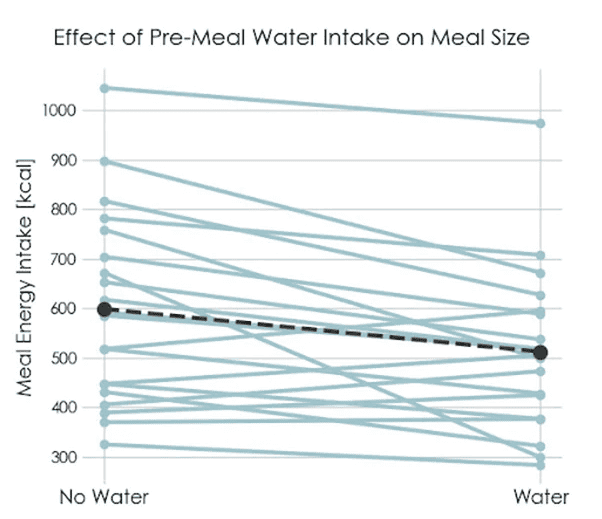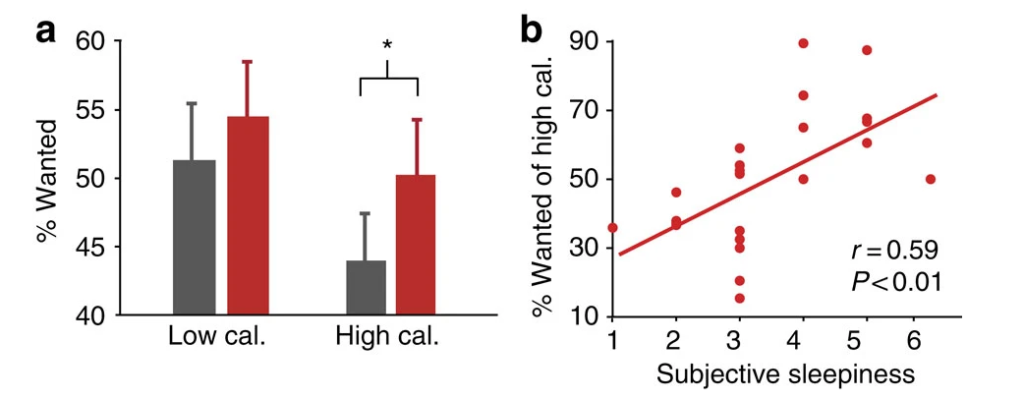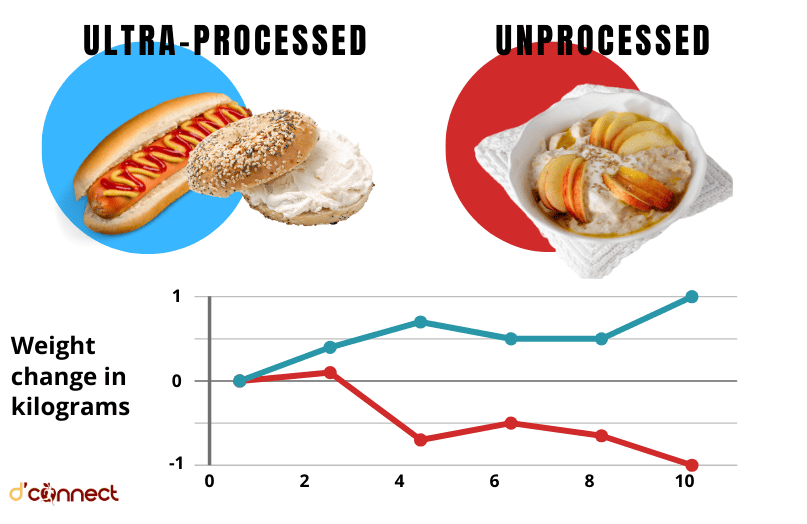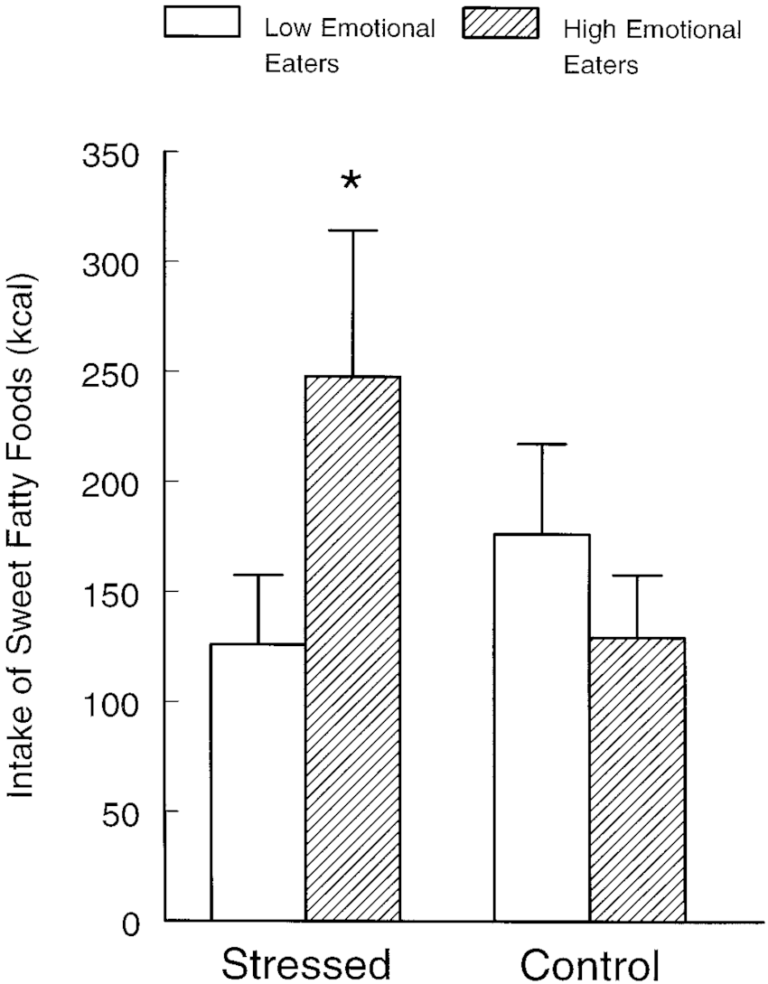
Carly Hanna
BSc (Human Nutrition and Psychology)
If you are just joining us in this series on binge eating, a great place to start would be Binge Eating Disorder: Is it a mental illness or an excuse to overeat?
Binge eating, whether diagnosed as a disorder or not, can have a physical and emotional impact on a person’s wellbeing.
While it is important to seek help and treatment, there are also self-help tips that can help prevent binge eating such as:
- exercise
- sleep
- drinking adequate amounts of water
- sleep
- avoiding processed foods
We talk about these tips and several others in more detail in the article. Join us, and at the end of the article, feel free to ask questions in the comments section.
Keep a food diary
Tracking your eating patterns and mood can be an effective way to identify emotional triggers for binge eating behavior.[1]
Triggers can include:
- social eating situations
- stress
- anxiety
- depression
- feelings of boredom or anger
- being ravenous
- having body image concerns
It can also be helpful to record things that help defer from binge eating including coping strategies.
Studies that incorporate a self-help programme, such as keeping a food diary, have shown to reduce episodes of binge eating.[2,3,4]
Stay hydrated
Being dehydrated can cause us to feel more hungry and lead to consuming more food than required in one sitting.
This is why drinking plenty of fluids throughout the day can help stabilise mood and appetite.[2]
Being hydrated decreases hunger
One study has showed that drinking 1-2 cups of water (375–500 ml) half an hour before eating significantly decreased hunger and calorie intake.[5]

While everyone’s nutritional needs vary, it is recommended to drink at least 8 glasses of water a day (around 2 litres).
Have a support system
Having social support is important for our overall well being. This is especially so for mental health conditions, such as binge eating disorder, as binge eating can cause feelings of shame, guilt and isolation.
Having a support system, such as family and friends you can confide in, can reduce overall stress and help those that deal with emotional eating.
Studies have shown that having reliable social support is associated with less binge eating episodes and lower binge eating severity.[6]
Get enough sleep
Not getting enough sleep can cause us to feel more hungry and tired throughout the day – this can lead to more binge eating episodes.
RELATED — Why we sleep: The role of sleep in our healthy life
Shorter sleep duration has also been associated with higher levels of ghrelin, the hunger hormone, and lower levels of leptin, the satiety hormone.[2]

Source: Greer, S., Goldstein, A. & Walker, M. The impact of sleep deprivation on food desire in the human brain. (2013)
For an adult, getting 7-9 hours of sleep can help with binge eating symptoms and also help maintain body weight, energy levels, and overall health.
Engage in regular physical activity
Exercise is known to improve mood, brain health, help manage stress, and overall maintain our body to stay in good health.
Studies have shown that increasing exercise across the week can stop binge eating in up to 81% of participants.[7]
RELATED — Zone Training — What is it and what is it good for?
Exercise can be even more effective when paired with psychological treatment, such as cognitive behavioural therapy.
It is important to find a form of physical activity that is enjoyable and works for you. This can look differently for everyone including walking, running, swimming, cycling, sports or going to the gym.
Portion your food
Instead of sitting down in front of the TV with an entire bag of chips, it can be helpful for some to only place a portion of the bag into a bowl. This can help the temptation of eating more than needed, and hence binge eat.
This tip is particularly useful when paired with mindfulness, which we discuss later in the article.
Eat foods high in fibre and protein
Fibre is a nutrient that contributes to a healthy gut and feeling full for longer. Having a diet high in fruits, vegetables and whole grains can curb cravings and reduce the risk of binge eating.
Avoid eating processed foods
Protein is another nutrient that can contribute to satiety and stabilising appetite. Good protein sources include:
- lean meats
- eggs
- low-fat dairy products
- plant-based proteins (tofu, beans and legumes, nuts and seeds)
RELATED — Alternative to Meat: Unprocessed plant-based protein sources

One study has shown that eating a high protein breakfast, instead of a high carbohydrate breakfast, can reduce levels of ghrelin, which is the hunger hormone.[8]
Eat regular balanced meals
Adhering to a regular eating pattern can help reduce the likelihood of binge eating. Skipping meals can disrupt blood sugar levels and also impact our mood.
It is important to eat regular balanced meals such as having ½ of your plate of vegetables, ¼ of your plate carbohydrates, and ¼ of your plate a rich protein source.
RELATED — The Healthy Plate Model: Essentials of Healthy Eating
Avoid dieting
Restrictive dieting is one of the major contributors to binge eating. This is because when we restrict our body of calories it needs to survive, it is innate to make up those calories elsewhere, which is why we might binge eat.
This is also why some people who don’t eat breakfast may actually end up eating more in a day than someone who typically eats breakfast.
In order to reduce the likelihood of binge eating, it is important to not restrict yourself of food, as this will prompt your body to crave more food in order to get the energy it needs to survive.
Stress relieving activities
Stress can be a contributing factor to emotional eating and binge eating.

Engaging in activities to relieve stress, such as
- yoga
- meditation
- mindfulness
- deep breathing exercises
can help manage feelings of stress, anxiety and depression.
Studies have shown that practicing yoga for 12 weeks can lead to a reduction in binge eating occurrences.[9]
Mindfulness
Mindfulness is a practice where we learn to observe and accept your thoughts and feelings instead of splitting them into good and bad.
If binge eating stems from emotional dysregulation, learning to sit with the emotion/feeling/thoughts that causes us to binge eat can improve self-awareness and help control binge eating behaviour.
Being fully present and mindful when we are eating can help you tune into your hunger and satiety cues.
RELATED — A Guide to Mindful Eating
Noticing the smell, taste and texture of food and minimising other distractions while eating can help us appreciate it and eat more slowly.[2]
Don’t partake in compensatory behaviours after binge eating
If you do happen to binge eat, don’t feel like you have to punish yourself and counteract the calorie intake by either purging, dieting, or excessively exercising.
This behaviour can lead to other eating disorders such bulimia nervosa, which has its own implications on physical and mental health.
Get advice from a health professional
With any physical or mental health condition, it is always best to seek support from a health professional. They will be able to best assess your situation and make a plan on what will work best for you.
The treatment options for binge eating disorder often can include psychological treatments such as:
- cognitive behavioral therapy
- family therapy
as well as pharmacological treatment such as anti-depressant or anti-anxiety medication.
Related Questions
1. What are the health consequences of binge eating?
Binge eating can have an effect on our physical and mental health. It can adversely impact:
- weight
- liver and kidney and heart function
- sleep
- fertility
- insulin resistance
- anxiety
- depression
RELATED — How Binge Eating Affects our Mental and Physical Health (Part 1)
2. How much food or calories is considered a binge?
While the number of calories may differ for everyone, a binge can be considered eating over 1,000 calories in one sitting.
One quarter of people binge eating can exceed 2,000 calories.[10]
3. Is Night eating syndrome (NES) the same as binge eating?
No. NES is considered a specified feeding or eating disorder in (OSFED) diagnosis.
NES is characterised by repeated episodes of eating at night. Binge eating, however, can occur at any time of day.[12]
Are you currently trying a new diet, which is leaving you feeling hungry and you find yourself snacking? If so, let us know in the comments below and Carly might be able to assist you.
Having passion for mental health and nutrition, Carly’s goal is to become a registered psychologist with a focus on self-care – food, exercise, and sleep. She has a special interest in various mental health disorders, plant-based diets, and the relationship between food and mood.
Through evidence-based research, holistic approach to health and personal experience, Carly hopes to empower others’ well-being.
Carly is a part of the Content Team that brings you the latest research at D’Connect.
References
(1) Sherry Christiansen. What does it mean to binge? Very Well Health. March 31 2021. Accessed online. Retrieved from https://www.verywellhealth.com/binge-definition-5116533
(2) Rachael Link. 15 helpful tips to overcome binge eating. Healthline. November 14 2019. Accessed online. Retrieved from https://www.healthline.com/nutrition/how-to-overcome-binge-eating
(3) Beth Axtell. The best things you can do to head off a binge. Web MD. October 20 2021. Accessed online. Retrieved from https://www.webmd.com/mental-health/eating-disorders/binge-eating-disorder/head-off-binge
(4) The Nutrition Library. Binge Eating Triggers Tip Sheet. March 23 2021. Accessed online.
(5) Van Walleghen EL, Orr JS, Gentile CL, Davy BM. Pre‐meal water consumption reduces meal energy intake in older but not younger subjects. Obesity. January 15 2007. (1):93-9. Retrieved from https://doi.org/10.1038/oby.2007.506
(6) Goodrick GK, Pendleton VR, Kimball KT, Carlos Poston WS, Reeves RS, Foreyt JP. Binge eating severity, self‐concept, dieting self‐efficacy and social support during treatment of binge eating disorder. International Journal of Eating Disorders. November 1999. 26(3):295-300. Retrieved from https://doi.org/10.1002/(sici)1098-108x(199911)26:3%3C295::aid-eat7%3E3.0.co;2-7
(7) Levine MD, Marcus MD, Moulton P. Exercise in the treatment of binge eating disorder. International Journal of Eating Disorders. March 19 1996. (2):171-7. Retrieved from https://doi.org/10.1002/(sici)1098-108x(199603)19:2%3C171::aid-eat7%3E3.0.co;2-k
(8) Blom WA, Lluch A, Stafleu A, Vinoy S, Holst JJ, Schaafsma G, Hendriks HF. Effect of a high-protein breakfast on the postprandial ghrelin response. The American journal of clinical nutrition. February 1 2006. 83(2):211-20. Retrieved from https://doi.org/10.1093/ajcn/83.2.211
(9) McIver S, O’Halloran P, McGartland M. Yoga as a treatment for binge eating disorder: a preliminary study. Complementary Therapies in Medicine. August 1 2009. 17(4):196-202. Retrieved from https://doi.org/10.1016/j.ctim.2009.05.002
(10) Walden Behavioural Care. Binge Eating Disorder. (2023). Accessed online. Retrieved from https://www.waldeneatingdisorders.com/what-we-treat/binge-eating-disorder/
(11) Samantha DeCaro. Night Eating Syndrome vs. Binge Eating Disorder: What’s the Difference? The Renfrew Centre. (2022). Accessed online. Retrieved from https://renfrewcenter.com/night-eating-syndrome-vs-binge-eating-disorder-whats-the-difference/






